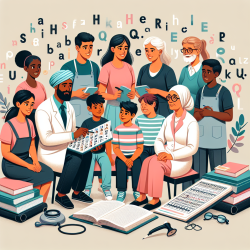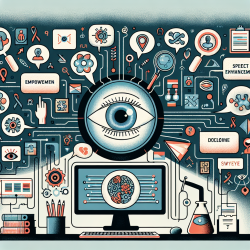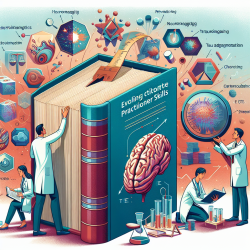In the evolving field of online therapy, leveraging research insights can significantly enhance the quality of care provided to clients. One recent study, titled Members of the public in the USA, UK, Canada and Australia expressing genetic exceptionalism say they are more willing to donate genomic data, provides valuable information that can be applied to improve practitioner skills and encourage further research.
This study, published in the European Journal of Human Genetics, explored public perceptions of genomic data sharing across several countries. The findings revealed that individuals who view genetic information as unique or 'exceptional' are more likely to donate their genomic data for research purposes. This insight can be particularly beneficial for practitioners in online therapy who are looking to integrate evidence-based practices into their services.
Here are some key takeaways from the research and how they can be implemented in online therapy:
- Understanding Genetic Exceptionalism: The study found that 52% of respondents held exceptionalist views about genetics, meaning they believe DNA information is different from other types of medical information. Practitioners can use this understanding to better communicate the importance of genetic data in therapy, helping clients appreciate the value of their contributions to research.
- Encouraging Data Donation: Those with personal experience in genetics and exceptionalist views were nearly six times more likely to donate their anonymous DNA and medical information for research. Online therapists can encourage clients to participate in genetic research by explaining the potential benefits for future medical advancements and personalized care.
- Addressing Privacy Concerns: While the study participants recognized potential harms from re-identification, this did not deter their willingness to donate data. Practitioners should address privacy concerns transparently, ensuring clients are informed about the measures in place to protect their data.
- Promoting Informed Decision-Making: By providing clients with comprehensive information about the significance of genetic data and the safeguards in place, practitioners can empower them to make informed decisions about data donation. This approach aligns with ethical standards and fosters trust in the therapeutic relationship.
- Further Research and Training: The interplay between exceptionalist views and the value attributed to genetic data is a promising area for future research. Practitioners are encouraged to stay updated with ongoing studies and participate in professional development opportunities to enhance their understanding of genetic data in therapy.
Incorporating these insights into practice can help online therapists provide more informed and effective care. By understanding the perspectives of clients regarding genetic data and addressing their concerns, practitioners can foster a more supportive and collaborative therapeutic environment.
To read the original research paper, please follow this link: Members of the public in the USA, UK, Canada and Australia expressing genetic exceptionalism say they are more willing to donate genomic data.










